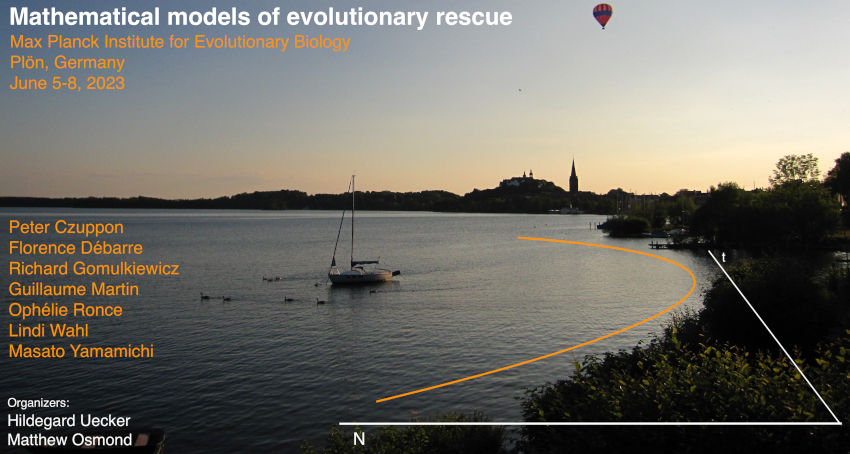Speaker
Description
If an environmental change is severe enough that local conditions are no longer within a species’ ecological persistence limits, populations must evolve in order to locally persist. Most species do not live in isolation and interactions with other species may help or hinder their ability to persist in a variety of ways. Previous studies have focused on the demographic effects of ecological interactions on adaption to environmental change. We extend this work by exploring the effects of genetic correlations between the traits involved in ecological interactions and those responding to abiotic environmental change. Using a multivariate quantitative genetic model, we show that genetic correlation can at times hinder adaptation and persistence following an environmental change, regardless of whether the ecological interaction is negative (e.g., predation) or positive (e.g., facilitation). Furthermore, we show that, given strong genetic correlations, increased facilitator density can actually decrease focal species persistence by slowing the rate of adaptation to abiotic change. Ecological facilitators can thus at times be evolutionary antagonists.

